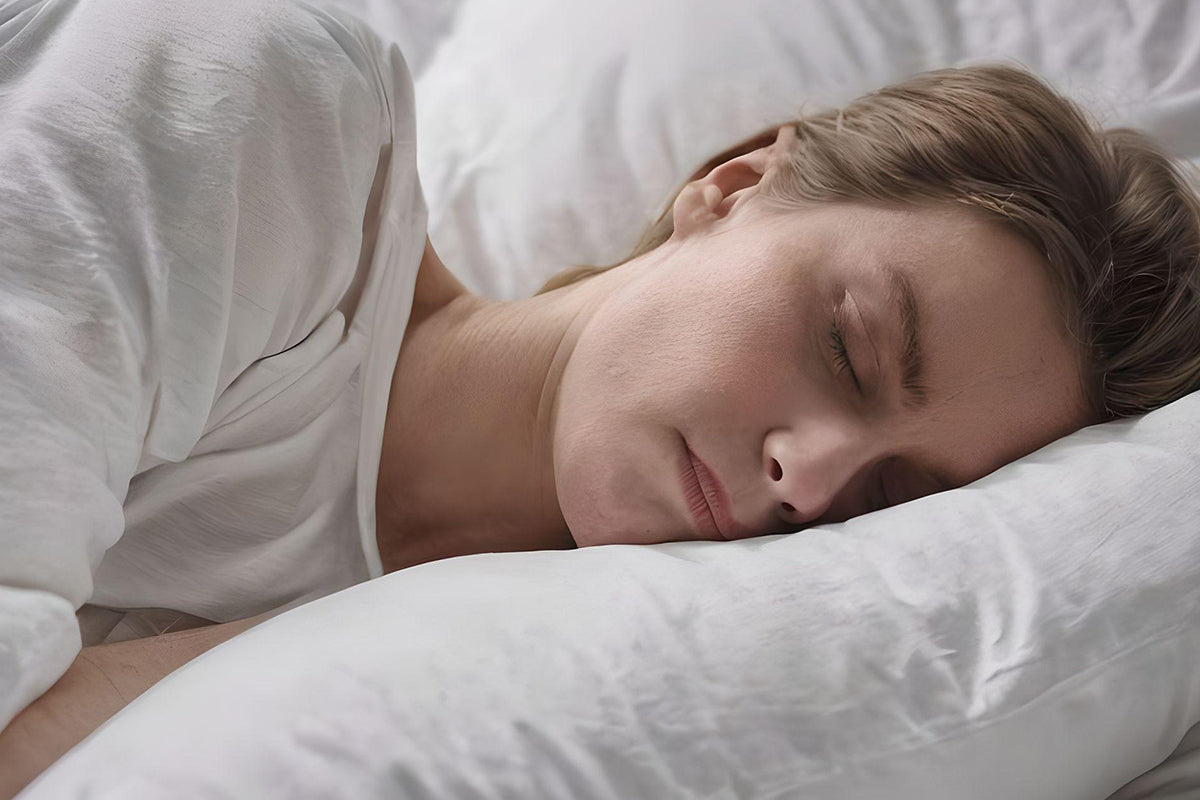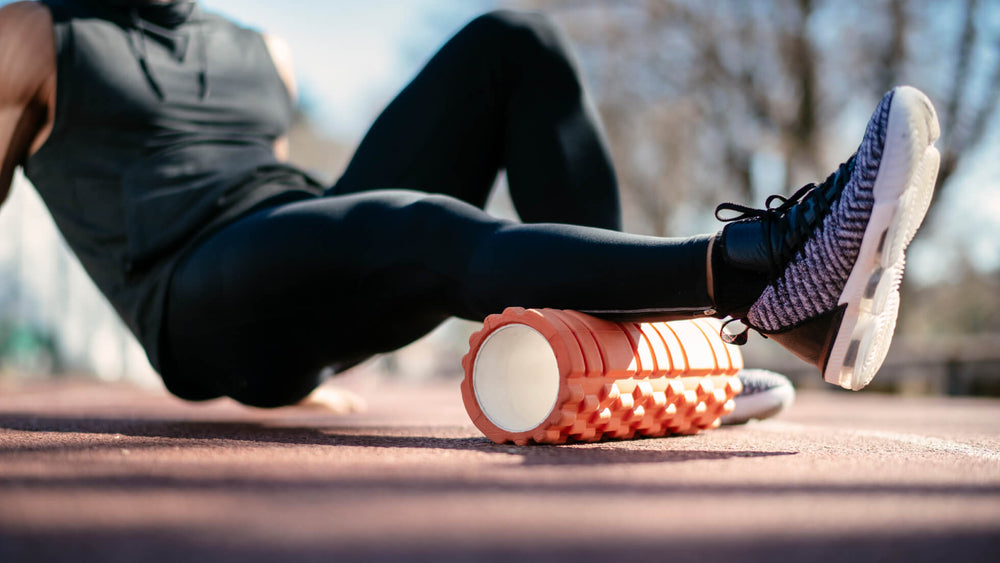Go To Sleep! A Brief Intro To The Science of Sleep for Endurance Athletes

For better or worse, we endurance athletes prioritize our efforts by what feels most effortful. If it’s hard to do, it surely provides the most benefit. As a general rule of thumb this could be worse, but it's far from an optimal approach. Unsurprisingly, many of us fall into the trap of overtraining as a result. When we don’t hit our numbers, we’re quick to blame training and double-down. So, let’s do a quick reset to re-establish our moorings. The three most important elements for endurance athletes to harmonize are: Training, Eating, and Sleeping. Athletes at peak performance dignify each as critical and mutually supporting the whole. Non-peak athletes (the rest of us) over-prioritize the training, pay casual attention to balanced nutrition, and don’t put sleep on the list. So, it’s in this spirit that I want to talk about sleep. What happens when we sleep and why does this matter for endurance athletes? Let’s dig in.
What Happens When We Sleep
Sleep is regarded as fundamental because it restores, repairs, or rebuilds every system in the body and, perhaps unsurprisingly, the amount of sleep required corresponds to the amount of damage inflicted. For non-professional athletes, seven to nine hours is recommended, and for elite athletes or professional athletes, nine hours is the minimum. For all of us, sleep is the restorative function that allows us to rebuild and improve as athletes.
Here are the bigger systems (non-exhaustive and very high level) being regulated and remade while you’re sleeping:
Metabolic Function: Sleep regulates your metabolic rate and allocates energy to essential repair and restoration processes; supports insulin function and prevents accumulation of glucose in your blood by efficiently feeding cells
Immune Function: Releases cytokines during sleep; proteins that regulate immune responses and promote inflammation which work to fight off pathogens and other invaders that don’t belong in your system
Cognitive Function: Your brain integrates all the the new information into existing knowledge networks; reorganizes neural networks to make them more efficient, and regulates the neurotransmitters responsible for mood, memory, and executive functions
Physical Restoration: Stress hormones, necessary to keep you functioning while active, are benched and growth hormones are brought out to repair damaged muscles and tissues. Your body will build back better after intense workouts, complements of growth hormones, but need the time to do their work
Here’s the take-away: The damage endured through the waking day can be repaired with sufficient sleep. If you’ve just executed perfect Vo2 max intervals and aim to ‘lock’ the gains, yet don’t intend to sleep well as an element of the process, then your improvement will be stunted, and your full potential unmet
What Happens When We Don’t Sleep
Although science hasn’t yet declared the field of sleep conquered (which is to say completely understood), we each know what it feels like when we don’t sleep - awful. Everything is exhausting, your thinking is cloudy, you're highly irritable, and concentration is impossible. You look terrible and feel sick because, well, you are. The work necessary to restore your body was either incomplete or, in many cases, not ever started. You're filled with toxins that were never cleared; it’s as if you’ve been poisoned. There’s only one way to solve this problem; Go to sleep.
More specifically, the relationship between sleep and performance is clear. According to the NIH article linked, here are (to name a few) potential consequences from sleep deprivation for endurance athletes:
- Increase in the rate of perceived effort
- Maximal Volume Uptake (V02 Max) decreased
- Higher physiological demands to make power, likely do to alteration of aerobic pathways
- Greater lactate accumulation in the muscles
- Reduced glycogen concentration in the muscles
- Disturbances of the autonomic nervous system promoting overtraining
- Affects the immune system and hinders muscle recovery
- General impacts to athletes performance and recovery
This article states that “although the effects of sleep deprivation on exercise are not completely understood, many converging results imply adverse effects of sleep deprivation on athletic performance.” There is still much to know and understand about sleep deprivation and its effects, but as the picture sharpens, the list of negative outcomes will likely get longer and the descriptions more precise.
The Three Pillars
The three pillars of peak performance: Training, Eating, and Sleeping. At its most simple, training breaks the body down, sleep builds it back up, and what you eat is the fuel. Neglect one, and the system wobbles (or even topples). By way of common sense appeal, if you are in the midst of a large training block, your nutrition and sleep should match the demands of that block. When you eat healthy food, your body will announce when it’s resupplied with feelings of satiety. Moreover, your body will announce when it’s ready for sleep with feelings of exhaustion. Your body is giving you the information you need, remember to listen.
Sleep Quality
This topic deserves its own treatment, but I’d be remiss if I didn’t mention something (although not the thrust of this article). Your sleep habits and your sleep patterns go a long way in determining your sleep hygiene. Not all sleep is created equally, with the best sleep quality being predictable, consistent, and follows or redounds to a circadian rhythm. REM sleep, or Rapid Eye Movement and Deep sleep is where the magic happens and contributes mightily to overall sleep quality. Here are a few basics that can maximize your REM and deep sleep:
- Keep a consistent sleep schedule
- Limit light and keep it quiet
- Avoid alcohol
- Limit stimulants – coffee and screens
- Limit stress
Also, daytime naps are fair play. They can help fill any gaps in your total sleep time and support the overall quality of sleep. Remember to control as many factors as you can that contribute to poor sleep quality and sleep loss.
Conclusion
I often encounter athletes that want to know how to get faster. They ask very specific questions about interval lengths and recovery time in-between. All important, but I immediately follow up with - what do you eat? How many hours do you sleep? I’ve found most endurance athletes have made good strides in terms of nutrition (alcohol is very much not included in this assessment), but sleep is often another story. It’s met with ‘I only need six a night’ or ‘I’m just so busy right now’ or whatever it happens to be. If we want to find our full potential as endurance athletes, sleep is as important as the training itself. Full stop. I’m happy to talk all day about intervals, but if you really want to take your performance to the next level, go to bed.
Sources
- https://www.ninds.nih.gov/health-information/public-education/brain-basics/brain-basics-understanding-sleep
- https://www.ncbi.nlm.nih.gov/pmc/articles/PMC9960533/
- https://www.sleepfoundation.org/physical-activity/athletic-performance-and-sleep#:~:text=Recommendations%20for%20athletes%20range%20between,much%20sleep%20as%20elite%20performers
Take the next step in your training regimen: Try any BRL Sports supplement risk-free! If our natural nutritional products aren’t the best you’ve ever used, simply return your purchase for a 100% refund — no questions asked!
Also in Inspiration & Perspiration

What Is EPO and Why Does it Have a Bad Rap?
EPO fuels red blood cells and endurance. Learn natural ways to boost it for stamina, strength, and recovery, while supplementing with EPO Boost by BRL Sports.

What Causes Cramps? (And How to Keep Them at Bay)
From dehydration to fatigue, cramps have many causes—here’s how to prevent them and power through pain-free.

Are All Sugars Created Equal? A Guide for Athletes
Not all sugars fuel you the same. From maple syrup to maltodextrin, learn which sugars boost endurance and what to consider when choosing.


